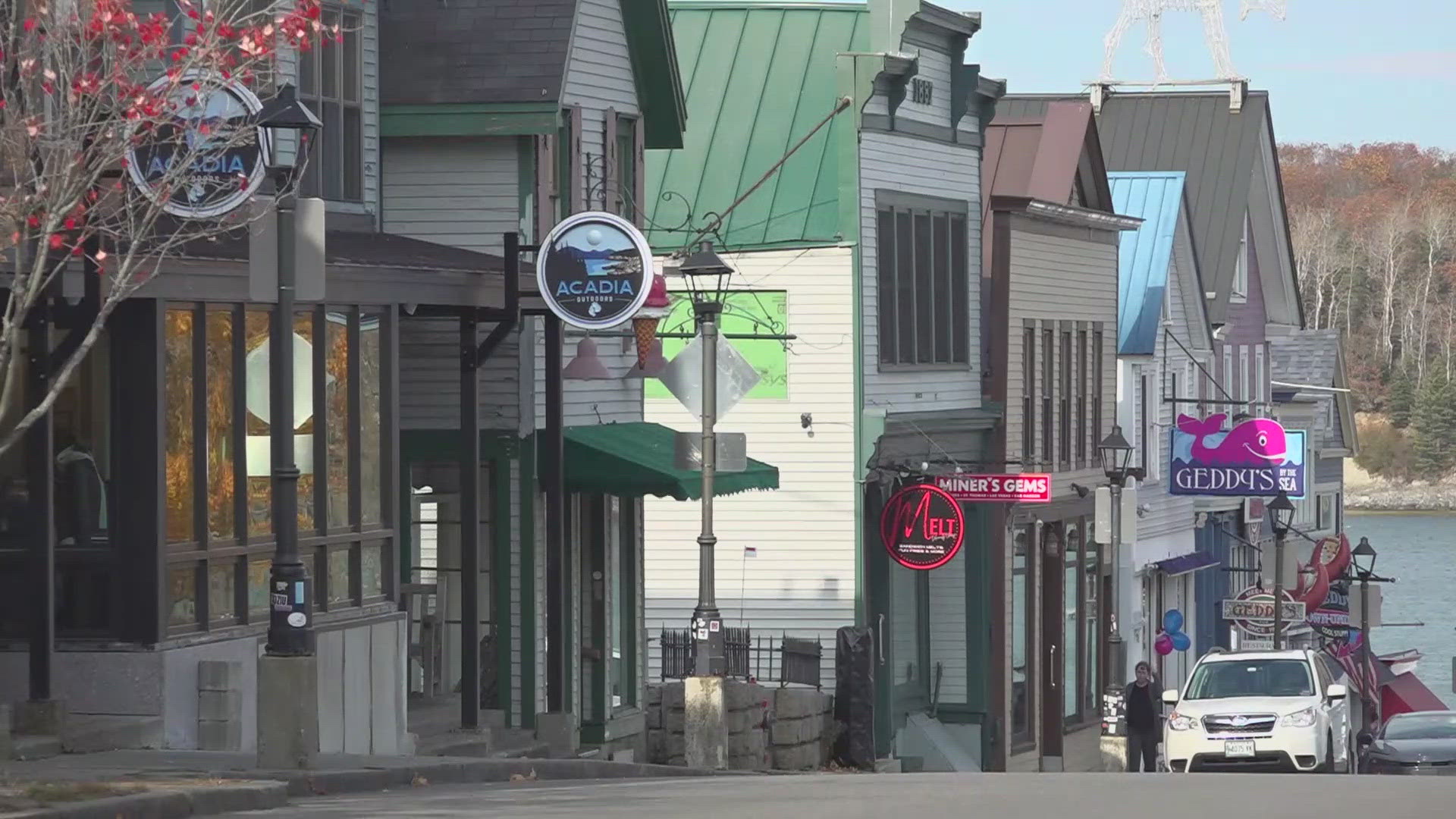AUGUSTA, Maine — Matthew Dunlap, Maine’s secretary of state, likens worries about voter fraud to Halloween fears of razor blades being placed in apples. People talk about it, and people worry about it. But no one knows anyone who’s bitten into a booby-trapped apple.
Dunlap, who made a name for himself by standing up to President Donald Trump’s Election Integrity Commission after the 2016 election, said there was no widespread voter fraud then.
Without dissenters like Dunlap, Trump’s insistence — still false — that there was widespread fraud in the 2020 election might have been given more serious consideration.
“It’s this urban legend that re-creates itself every election year,” Dunlap told The Associated Press in a recent interview. Only three voter fraud cases have been referred to the attorney general’s office in his tenure, he added.
Dunlap, 56, is wrapping up a frenetic four-year span in which he ushered in precedent-setting rules for ranked-choice voting, managed the biggest election in recent memory during a pandemic — and was a thorn in the side of leaders of the infamous voter fraud commission.
The state’s departing top election official is an unassuming guy who’s happy to chat about hunting, history, or cooking. But he takes his job seriously as administrator of the state’s elections, Bureau of Motor Vehicles and archives.
He gained national fame after then-Kansas Secretary of State Kris Kobach asked him to join the commission that was created after Trump alleged without evidence that there were millions of fraudulent votes in 2016. Republicans Kobach and Vice President Mike Pence led the commission. Dunlap is a Democrat.
Dunlap publicly attacked Kobach’s claim that thousands voted illegally in New Hampshire, based on data showing that 5,000 people who registered with out-of-state IDs failed to obtain New Hampshire IDs after the election.
“Making this equation that somehow people not updating their driver’s license is an indicator of voter fraud would be almost as absurd as saying that if you have cash in your wallet, then that’s proof that you robbed a bank,” Dunlap said at the time.
Dunlap sued after he claimed Republicans responded to his comment by ghosting him — denying him calendars and working documents.
Documents that were eventually provided to Dunlap showed that there was a “preordained outcome” and that a draft report included a section on evidence of voter fraud that was “glaringly empty,” he said at the time.
The commission disbanded in January 2018, two weeks after a judge ruled in Dunlap’s favor. The panel never publicly released any findings.
“Secretary Dunlap was one of the first people to knock back the president’s voter fraud claims simply by demanding to see the evidence. It was a critical, early lesson that the president’s falsehoods never survive their first encounter with the truth,” said Austin Evers, executive director at American Oversight, which provided Dunlap’s counsel.
Kobach, who said the commission disbanded under the weight of 13 lawsuits, still disagrees with Dunlap over the extent of voting irregularities.
“It’s not ‘vanishingly rare.’ It’s substantiated,” he said from Kansas. “The question is whether it’s enough to overturn a presidential election. That remains to be seen.”
There is no evidence of widespread fraud in the 2020 election. In fact, election officials from both political parties have stated publicly that the election went well and international observers confirmed there were no serious irregularities.
Problems with signatures and the potential for a small number of ballots miscast or lost are typical in every election. In 2020, the Trump campaign’s legal challenges, or those brought by allies, that complain their poll watchers were unable to scrutinize the voting process have been tossed out by judges. None of the complaints show evidence the outcome of the election was affected.
Dunlap said he’s happy to have played a role in the commission’s demise.
“We forced that discussion back to where it belongs — in the public square. You’re not going to have a shadow commission making shadow decisions,” Dunlap said.
Dunlap is wrapping up his fourth consecutive term and cannot run again. He also served three terms previously. Six people are vying to replace him when the Maine Legislature convenes Wednesday.
He’s going out with a bang after the biggest election he’s overseen, with up to 80% turnout during a pandemic. The election, which included a record number of absentee ballots, went off largely without a hitch.
For all the hoopla over elections, Dunlap said, it’s the little things people will remember. He recalls as a first-term legislator sorting out a constituent’s lost driver’s license and delivering it to the man’s home. The man needed to drive his wife to medical appointments.
“I will never forget the look on that man’s face. It was pure relief. It was like I saved his child. Oh, that’s what it’s about,” he said of public service.
Dunlap hopes to remain in public service and is running for auditor this week. His wife, Michelle Dunphy, will serve as the House majority leader.
Tennessee Secretary of State Tre Hargett recalled Dunlap working across party lines and cracking jokes if things became tense.
“Matt always seems to have a story that matches every occasion and an ability to lighten the mood when it got too serious,” he said.
Leslie Reynolds, executive director of the National Association of Secretaries of State, agreed that Dunlap has a knack for disagreeing without being disagreeable.
“Matt’s always been a straight shooter. He’s able to deliver a message, good or bad, in a way that resonates with people but doesn’t seem to leave people angry. It’s a gift,” she said.
Dunlap received a salute from fellow secretaries of state via Zoom during his final election committee meeting this month.
Dunlap made the motion to adjourn the meeting.



